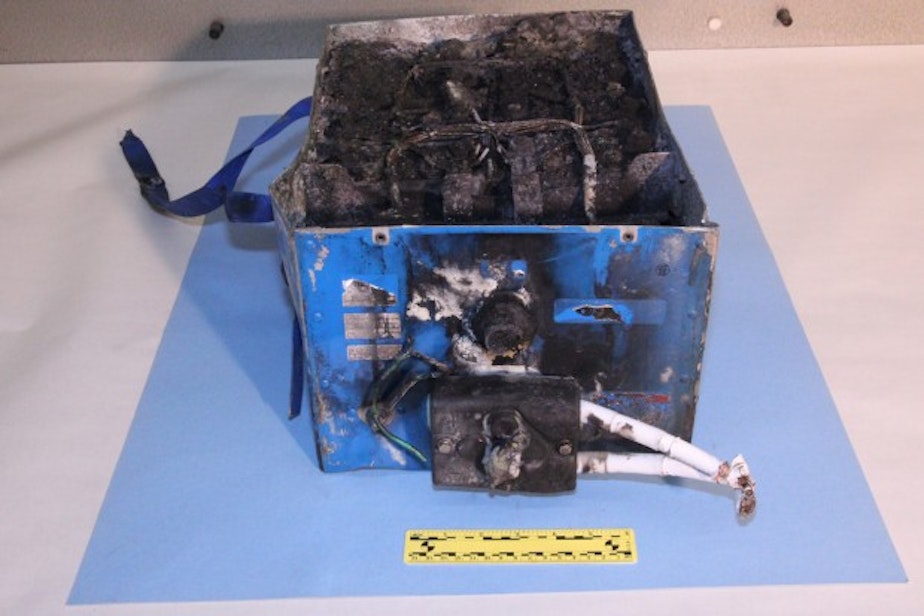Battery At Heart Of Safety Review Was "Key" In 787 Development

The Boeing 787’s lithium-ion batteries are now the subject of intense scrutiny. The Federal Aviation Administration has grounded the entire 787 fleet in the US until it can get to the root cause of a fire hazard involving the batteries.
The latest incident forced an All Nippon Airways flight to land this week when smoke became noticeable in the cabin. Now regulators say they will sort out whether the trouble with the batteries is caused by the batteries' design or manufacture, or whether the problem lies in another part of the plane's electrical or charging system.
Figuring out just what is wrong and who is responsible will be a complicated task. GS Yuasa Corp. of Japan says on its website that it manufactures the lithium-ion batteries in the Dreamliner. Another company, Thales Group of France, is involved. In a statement in 2005, GS Yuasa announced a contract involving Thales, marking "the first commercial aviation application of Li-ion technology anywhere in the world."
GS Yuasa said its lithium-ion batteries would "play a key role in on-board power, providing both Auxiliary Power Unit start and emergency power back-up capabilities."
Thales was similarly proud of its role in supplying Boeing. In a statement in 2010, it said Boeing had chosen its lithium-ion battery technology for the 787 low-voltage DC emergency backup subsystem. "This is a first in civil aviation," Thales states, "with Thales as prime contractor in association with Securaplane of the United States and GS Yuasa of Japan."
Sponsored
Thales said its power conversion technology had been chosen to power electrical environmental control systems and the brake system on the Dreamliner.
Thales’s power conversion system has achieved a very high power density benchmark, further contributing to reductions in both weight and volume onboard the B787. Lightweight electrical circuits now replace some hydraulic circuits, meaning a greater range of systems are now powered by electricity. ...The new generation power conversion system includes an innovative transformer and rectifier solution that supports the B787 high-voltage DC network.
There are strong reasons for choosing lithium-ion batteries. According to GS Yuasa, lithium-ion offers twice the energy as the same dimension of nickel-cadmium battery, and it can charge rapidly. GS Yuasa claims the battery can charge from zero percent to 90 percent in 75 minutes. However, lithium-ion batteries can overheat when overcharged or when in high use. The companies' statements show how interwoven and complex the relationships are between supplier companies and Boeing as the designer and builder of the aircraft. Just what is happening on Dreamliner planes and what parts are responsible are the questions before regulators now.
